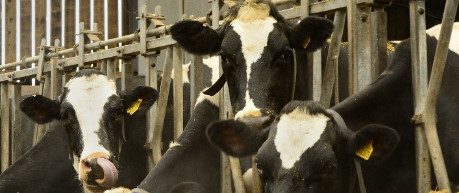Friday 6th March 2020, 5:00pm
Farmers and their livestock could benefit from making full use of existing tests to detect diseases, indicates a survey.

The online survey, conducted by scientists at the Roslin Institute and the Royal (Dick) School of Veterinary Studies, in collaboration with AbacusBio, aimed to understand current diagnostic practices in the UK dairy cow sector and to identify areas that could benefit from improvement.
AbacusBio, an agri-scientific services company, has offices at Roslin Innovation Centre, and in Dunedin and Rotorua, New Zealand.
The survey found that the effective use of existing farm diagnostic tools and more accurate tests could help identify early stage disease. In addition, the study found that farmers would welcome development of simple, low-cost tests to diagnose diseases earlier in dairy herds, yielding results quickly.
Focusing on tools used for monitoring mastitis and metabolic disorders, the survey was completed by 34 farmers and 42 veterinarians in the UK, and found that the best methods identified by veterinarians are not used by a large percentage of farmers.
The majority of farmers who completed the survey would welcome new tests able to diagnose disease at earlier stages than currently possible, and would prefer such tests to use samples of milk, rather than blood or urine, and to yield results within 24 hours.
"The incidence of mastitis and metabolic disorders in UK dairy herds has not decreased over the past decade. The results of our survey indicate that farmers could benefit from making full use of available diagnostic tools. Our results highlight that farmers would like new tests to be more accurate in detecting early disease, simple and not costly to use."
Dr Xavier Donadeu, Principal Investigator and survey lead, the Roslin InstituteSurvey respondents were representative of the dairy industry with regards to the size of their herds, calving and feeding systems used, as well as where their farms are located. The findings were published in the journal Frontiers in Veterinary Science.
Source: The Roslin Institute